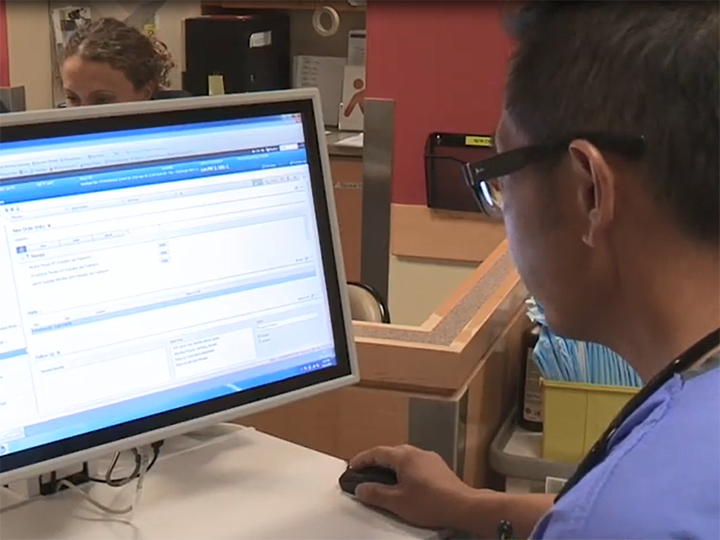Posted on

It’s not news: Sepsis is deadly. The Canadian Sepsis Foundation estimates that 1 in 18 deaths in Canada are related to sepsis – a life-threatening condition that arises when the body’s response to an infection injures its own tissues and organs. Put another way, “Sepsis affects 30,000 Canadians each year and over one-third of these will die if not treated appropriately,” according to the Canadian Patient Safety Institute. We also know that sepsis is expensive, with the total cost of treating sepsis in Canada about $325 million per year.
Now for the good news: The Clinical and Systems Transformation (CST) project has introduced sepsis alerts as part of the CST Cerner clinical information system, which is in use at sites across Vancouver Coastal Health, the Provincial Health Services Authority and Providence Health Care and will be rolled out at more locations in the coming years.
“As clinicians, we’re supposed to understand a lot of conditions that we take care of, but we’re all so busy. For a nurse who is on a surgical floor taking care of seven patients, the new alerts will be like an extra pair of eyes to help watch over our patients,” says Christine Jerrett, an RN and Senior Manager, Clinical Informatics with the CST project. “It’s not to take away clinical judgment; it’s to help support it.”
CST’s vendor partner, Cerner, uses an evidence-based algorithm called the St. John Sepsis Agent. It’s designed to detect situations that require early intervention for patients at risk, helping prevent deterioration into sepsis or septic shock. It’s always working in the background. As nurses document their patient assessments and the lab enters information in the system, the system is constantly evaluating the patient to see if they meet certain criteria, and if so, an alert is sent out.
When it comes to sepsis, the Canadian Patient Safety Institute asserts that speed and appropriateness of therapy improves patient outcomes, and the research backs this up. In a 2009 report released by the Canadian Institute for Health Information, Dr. Marc Francis stated that for every hour delay of sepsis shock before you get antibiotics on board, survival has been shown to decrease by 7.5 per cent.


